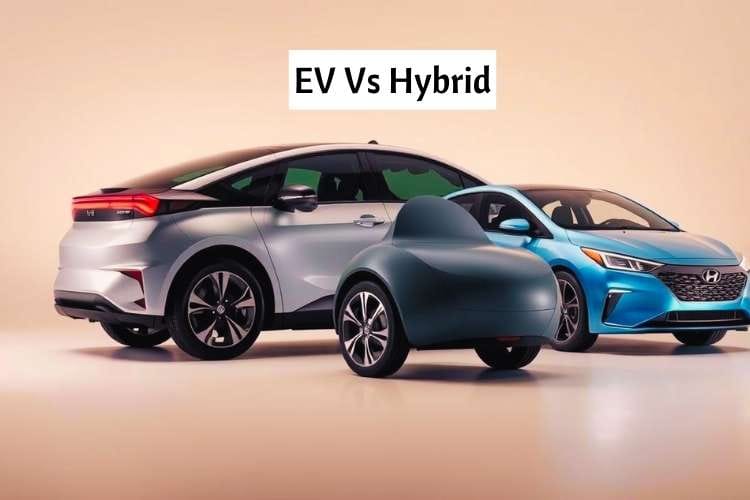EV Vs Hybrid: As environmental concerns grow, switching to an eco-friendly vehicle is a step in the right direction. I’m here to guide you through the ultimate comparison between Electric and Hybrid vehicles, helping you discover the key factors to consider when making your choice.
In this comprehensive guide, we’ll explore the pros and cons of each option, enabling you to make an informed decision that suits your lifestyle and preferences. With the rise of Electric Vehicles and Hybrid Vehicles, it’s essential to understand which is best for you.

Table of Contents
EV Vs Hybrid: Key Takeaways
- Understand the benefits and drawbacks of Electric Vehicles and Hybrid Vehicles.
- Learn how to choose the right eco-friendly vehicle for your needs.
- Discover the key factors to consider when comparing Electric and Hybrid Vehicles.
- Explore the environmental impact of different eco-friendly vehicle options.
- Get insights into the latest trends in eco-friendly transportation.
EV Vs Hybrid: Understanding Eco-Friendly Vehicle Options
As we dive into the world of eco-friendly transportation, understanding the nuances of Electric Vehicles (EVS) and Hybrid vehicles becomes crucial. The shift towards sustainable transportation is gaining momentum, and both EVS and Hybrids are at the forefront of this movement.
What Are Electric Vehicles (EVS)?
Electric Vehicles (EVS) are powered solely by electricity stored in batteries, which can be charged from an external power source. EVS represent a significant step towards reducing our reliance on fossil fuels and mitigating environmental pollution.
Types of EVS Available in India
India’s EV market is growing, with various models available, including:
- Battery Electric Vehicles (BEVS)
- Plug-in Hybrid Electric Vehicles (PHEVS)
What Are Hybrid Vehicles?
Hybrid vehicles combine a conventional internal combustion engine with an electric motor. This combination aims to achieve better fuel efficiency and lower emissions.
Different Hybrid Technologies
Hybrid vehicles employ various technologies, including:
| Technology | Description |
| Mild Hybrid | Assists the engine during acceleration |
| Full Hybrid | Can run solely on electric power or engine power |
| Plug-in Hybrid | Can be charged from an external power source |
Popular Hybrid Models in India
Some of the popular Hybrid models in India include the Toyota Camry Hybrid and the Hyundai Tucson Hybrid. These models showcase the Hybrid technologies available in the market, offering a blend of fuel efficiency and performance.
“The future of transportation is electric, and Hybrid vehicles are a step in that direction.”
– Expert in Sustainable Mobility
EV Vs Hybrid: The Ultimate Guide to Choosing Your Eco-Friendly Ride
Maintenance and Long-term Costs
| Category | EVs | Hybrids |
| Battery Replacement | High initial cost, but generally lasts the lifetime of the vehicle | Lower initial cost, but may need replacement |
| Service Requirements | Fewer moving parts means less maintenance | More complex engine means more maintenance |
Conclusion
As I weigh the pros and cons of EV vs Hybrid, it’s clear that both options have their strengths and weaknesses. When deciding on an eco-friendly ride, consider your lifestyle, driving habits, and priorities. India’s infrastructure and government incentives also play a crucial role in this decision.
Both EVS and Hybrids contribute to sustainable transportation, reducing our carbon footprint. By evaluating factors such as environmental impact, performance, and maintenance costs, you can make an informed choice that suits your needs.
Bhakti Rawat is a Founder & Writer of InsureMyCar360.com. This site Provides You with Information Related To the Best Auto Insurance Updates & comparisons. 🔗
